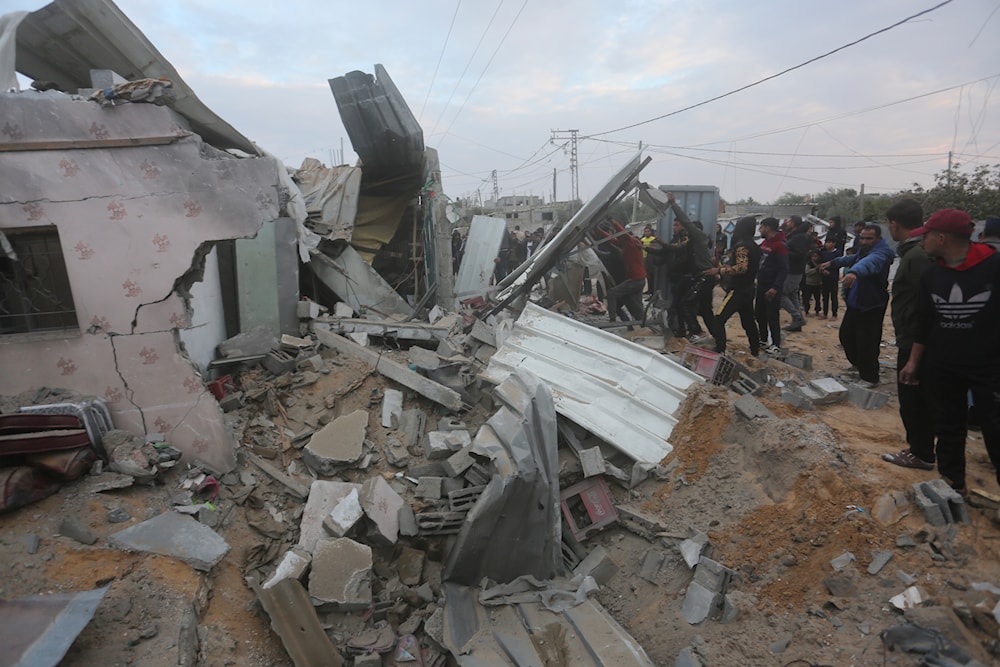Israeli media: Egypt, USA, Qatar acts show no signs of 'ending Hamas'
Israeli Channel commentator states that the US request for humanitarian aid to the Gazans is a way of enabling Hamas.
-

Palestinians look at a residential house destroyed in an Israeli strike in Rafah, Gaza Strip, Monday, Feb. 5, 2024.(AP)
Israeli media confirmed today, that all mediators, including Egypt, Qatar, and even the United States of America, actions suggest that Hamas “will remain in the Gaza Strip.”
Arab affairs commentator on the Israeli Channel 13, Zvi Yehezkeli, claimed that Qatar can “end Hamas in just one day by stopping the support and funding allocated to it,” noting that Egypt “is also preserving Hamas.”
He added that the United States of America, through its persistent request to allow humanitarian aid to Palestinians "is preserving air and oxygen for Hamas."
Yehezkeli stressed that the talk about “eliminating the Hamas movement, dismantling its military capabilities, and not harming civilians" is completely unclear, even in the Cabinet further elaborating that "Hamas is rooted in Gaza and removing it is not easy."
Yesterday, Israeli Prime Minister Benjamin Netanyahu also stressed that “ Israel will not end the war before eliminating Hamas and ensuring that Gaza no longer poses a threat to Israel.”
WSJ: Israeli ground invasion of Gaza is not going well, costs are high
The recent Israeli ground losses in Gaza indicate that the military's overarching goal to incapacitate Hamas and its ability to harm Israelis remains out of reach, even in the northern part of the Gaza Strip, which has been the main focus of the army's offensive since the beginning of the war, The Wall Street Journal reported on December 13.
The newspaper pointed out that the increasing number of Israeli casualties reflects a shift in military warfare tactics, with a greater emphasis on urban and ground combat.
According to the Israeli military, since launching the ground war, 115 soldiers and officers have been killed, and approximately 600 have been wounded in Gaza. This is the highest number of casualties the occupation army has ever suffered in previous wars against the Palestinian Resistance in the Strip.
Commenting on the situation on the battlefield, former Israeli intelligence official Shalom Ben Hanan said that carrying out military operations from house to house and “checking things from up close instead of destroying them from far away” comes at a price for Israeli forces.
In military and security internal discussions, some have begun to question this strategy, he noted

 2 Min Read
2 Min Read








